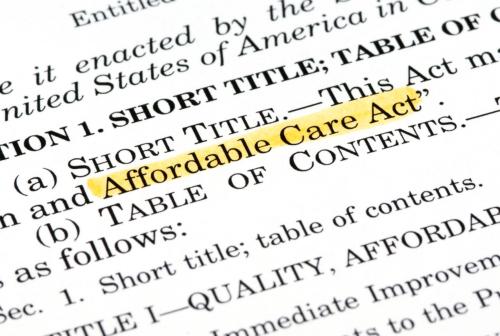Editor’s Note: Mark McClellan speaks to Kai Ryssdal on National Public Radio’s “Marketplace” about rumors that President Barack Obama may drop the public option in a new health care bill.
KAI RYSSDAL: The White House insists the president still favors a public option — some kind of government-run insurance program. But give and take is part of the political process. And there are reports that that option may be up for negotiation. To help figure out what that and the rest of the debate might actually mean we’re called Mark McClellan. He’s the director of the Engleberg Center for Health Care Reform at the Brookings Institution. He’s an MD and an economics PhD. Welcome to the program.
MARK MCCLELLAN: Kai, good to be with you.
RYSSDAL: How much would it matter if next Wednesday night the president does do away with this public-insurance option? In the grand scheme of health care reform, what does that mean?
MCCLELLAN: It would help bring Republicans on board Kai, and I don’t think it’s absolutely essential for getting health care spending growth down. There are many other ways to do that. So it could be a way to get Republicans on board. I’m not sure it’s enough to do it by itself, but it could be an important step towards a bipartisan approach for health care reform.
RYSSDAL: Does it make this discussion about health care reform though more into health-insurance reform somehow?
MCCLELLAN: I believe this has got to be about health care reform. It can’t just be about expanding health insurance and changing insurance market rules. We’ve got to make it easier for doctors, patients, or other health professionals to take the steps that are necessary to prevent complications, to keep people well, and to avoid unnecessary health care costs. In so many ways the health care payment systems we have in place today don’t make it easy for people to get the best care at the lowest cost, so that’s got to change too.
RYSSDAL: You know, you mentioned this a moment ago. The idea that the Obama administration has to curb health care spending, the growth in health care spending. Did they make a political/tactical error when they made cost-cutting sort of the centerpiece of their plan, of their proposal?
MCCLELLAN: A lot of Americans are understandably concerned given the complexity of the whole health care debate that steps to lower health care costs could result in reductions and access to care. And that’s why I think it’s so important to frame any discussion about health care costs savings around the fact that there are plenty of opportunities in our health care system to reduce costs while actually improving quality of care.



Commentary
What’s Next for Health Care Overhaul?
September 3, 2009